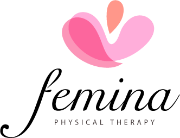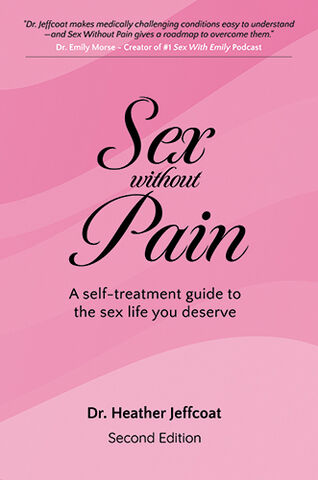Pelvic Floor Rehabilitation for Prolapse Surgeries
Including both Pre and Post Operative Situations
Suffering from symptoms of pelvic heaviness? Experiencing a feeling that there is a bulge down there or something is falling out of your vagina? Have trouble having a bowel movement or experiencing incontinence? These are all common symptoms of pelvic organ prolapse (POP). Unfortunately, 2-48% of women may experience symptoms of POP.
Pelvic Floor Rehabilitation Treatment Options
There are treatment options such as pelvic floor rehabilitation through physical therapy techniques including lifestyle modifications such as managing intraabdominal pressure, promoting healthy bowel/bladder habits, as well as physical therapy, manual therapy, and strengthening exercises to decrease pelvic heaviness.
Other pelvic floor rehabilitation treatment options include:
- pessaries,
- pharmacological agents to help with incontinence or frequency,
- and/or surgery
There is an 11% risk of needing surgery to correct the prolapse by age 80. Unfortunately, 41% of women had a recurrence of prolapse after 5 years of surgery, and 10% of women had a repeat surgery within 5 years of the first surgery. Risk factors for requiring a second surgery include:
- Older age
- Postmenopausal status
- Parity
- Higher body mass index
As you can see, surgery alone may not be the best option. There is evidence that trying conservative treatments first, namely pelvic floor physical therapy, may prevent worsening of prolapse and may improve your symptoms significantly to the point where surgery is no longer recommended. Regardless of the treatment path you choose, having both pelvic floor physical therapy and surgery may help relieve some symptoms and prevent you from having that repeat surgery!
Studies on the role of pelvic floor rehabilitation and prolapse treatment
A systematic review in 2011 concluded that there is evidence of a positive effect from participating in pelvic floor muscle training for prolapse symptoms and severity. They find that it is best to have at least six months of supervised pelvic floor rehabilitation in order to decrease symptoms. This systematic review also found evidence that pelvic floor physical therapy results in stronger muscles and improvement in urinary symptoms.
Another study compared women’s pelvic floor muscle assessments between two groups: an intervention group that received pelvic floor physical therapy before and after surgery and a control group that did not receive any physical therapy. They found that the treatment group significantly scored better on quality of life measures and urinary symptom questionnaires compared with the control group. The authors “postulated that the longevity of the procedure could be improved due to greater support of pelvic organs by the pelvic floor muscles during the crucial period of postoperative healing.”
What would pelvic floor rehabilitation include?
- Assess your pelvic floor musculature for strength, coordination, and endurance
- Based on your assessment, provide an individualized treatment plan for you! It may include pelvic floor contractions (or Kegels), or it may not
- Pessary fitting
- Education and practice on minimizing intra-abdominal pressure and how it may worsen prolapse
- Teach how to utilize the “knack” exercise to help with coughs, sneezes, jumps, exercises
- Education on how to minimize constipation and straining on the toilet
- Education on how to prevent bladder urinary frequency and unwanted leakage
- Exercises (not just pelvic floor, but your hips, core, low back muscles) to help improve overall pelvic strength
Think of it as any other surgery, for example, total knee replacement surgery. Most doctors would recommend a pre-rehab and post-rehab program for new knee recipients to maximize their potential for success and decrease their need for another future surgery. The same thing applies to gynecologic surgeries! It is truly beneficial to have a better understanding of why you developed prolapse in the first place, how your pelvic floor functions, habits/strategies to promote healthy bladder and bowel function in order to minimize symptoms and maximize your potential for success! If you think you may have prolapse or are already thinking about surgery, give us a call or contact us through our website.
References:
Hagen S, Stark D. Conservative prevention and management of pelvic organ prolapse in women (Review). Cochrane Database of Systematic Reviews 2011, Issue 12. Art. No.: CD003882. DOI: 10.1002/14651858.CD003882.pub4.
Jarvis SK, Hallam TK, Lujic S et al. Peri-operative physiotherapy improves outcomes for undergoing incontinence and or prolapse surgery: Results of a randomised controlled trial. Australian and New Zealand J of Obstetrics an Gynaecology 2005;45: 300-303.
McClurg D, Hilton P, Dolan L et al. Pelvic floor muscle training as an adjunct to prolapse surgery: a randomised feasibility study. Int Urogynecol J 2014;25:883-891. Doi: 10.1007/s00192-013-2301-x













